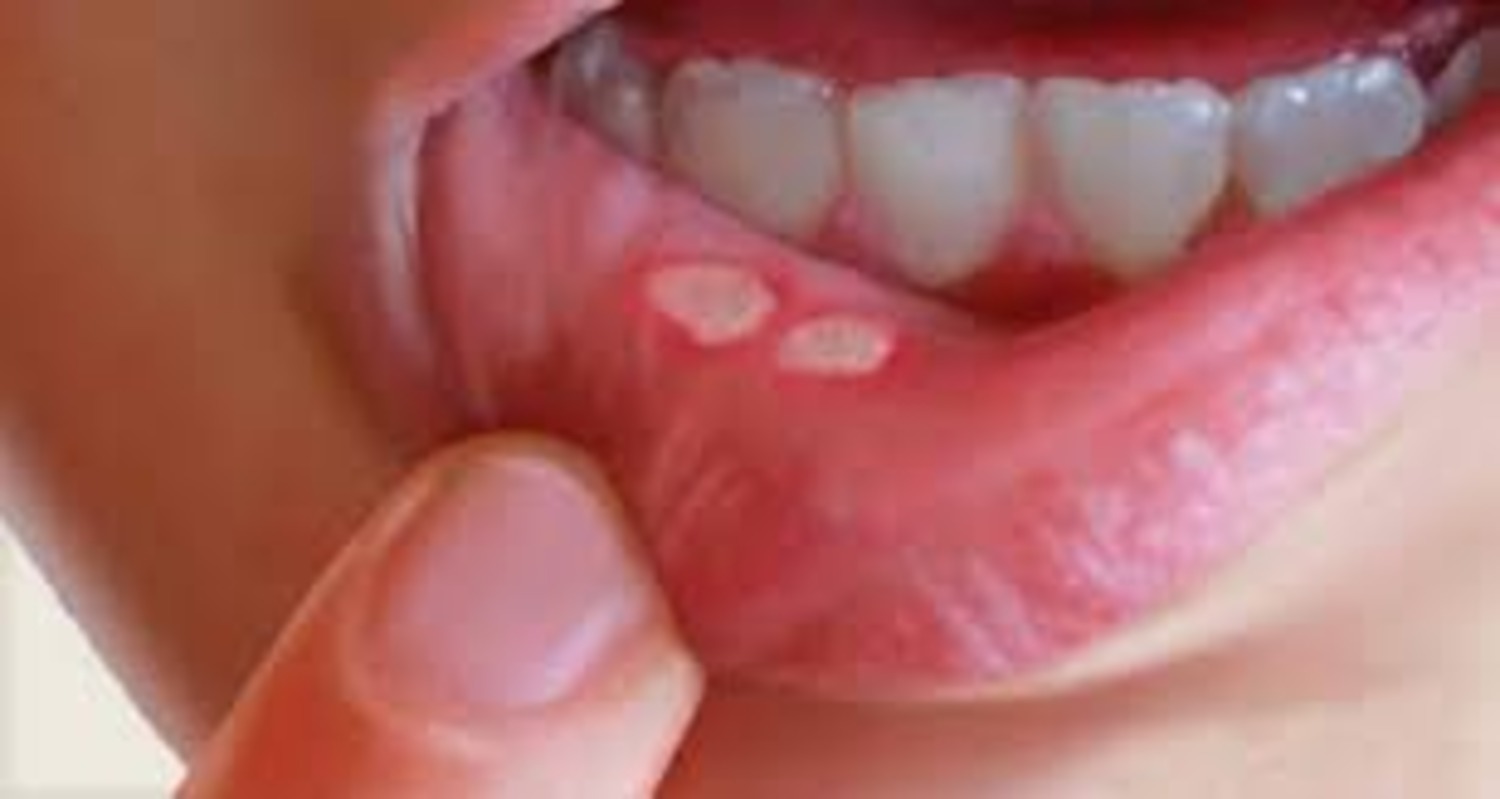Hydrogen peroxide (available in a household cabinet) minimizes mouth bacteria and helps heal the ulcer. Mix a few drops of water with a small amount of diluted hydrogen peroxide to use as a mouth rinse.
Hydrogen Peroxide
A canker sore is a painful ulcer in the mouth that may affect your ability to speak, chew and swallow. Its exact cause is unclear, but it can be triggered by irritation or injury, foods like spicy and acidic ones, or some medications such as beta-blockers, NSAIDs and chemotherapy drugs. Stress, lack of Vitamin B12 or folic acid and the onset of menstruation for some women also trigger canker sores. Luckily, there are many remedies to help ease pain and heal the ulcers.
Hydrogen peroxide can be used as a mouthwash to clear away bacteria and numb pain. Mix one part hydrogen peroxide with two parts water and squirt onto the sore several times a day. Alum powder has astringent properties that can shrink the sore and dry it. You can find alum powder in the spice section of most grocery stores. It can sting a bit when applied, so don’t apply it directly to the ulcer.
Echinacea is an immune system booster and also helps reduce pain and swelling. Make a sage mouthwash by steeping a few tablespoons of the herb in boiling water for 5 minutes. Rinse several times a day.
Alum Powder
Alum, or potassium aluminum sulfate, is often used in food preservation because of its astringent properties. But it can also help dry out a canker sore and speed healing. To use it, mix a small amount of powder with water and apply it to the abscess. Then rinse and repeat.
Another option is a salt water rinse. Mix 1/2 cup of warm water with a teaspoon of salt. Swish the solution around in your mouth for 30 seconds, then spit it out. This will soothe the area and reduce bacteria that cause canker sores.
Chamomile tea is a natural anti-inflammatory that can also help soothe the pain of a canker sore. To make a soothing tea, steep one to two tablespoons of dried chamomile in hot water for five minutes. Then strain and allow the mixture to cool. Use the tea as a mouthwash three to four times a day.
While it’s unclear why alum works for some people (and not others), it may be because it cauterizes the ulcer, meaning it burns the tissue and closes the sore. However, Dr. Kerr warns that this is not a permanent fix and that you should seek out other treatments. Regardless, it’s important to apply the treatment as soon as you notice the sore forming to “nip it in the bud,” she says.
Honey
Canker sores (or aphthous ulcers1) are painful lesions in the mouth that usually appear white or yellow with a red rim. They can make it difficult to eat and speak, but aren’t contagious. Fortunately, they’re not usually serious and can be easily treated with at-home remedies.
Hydrogen Peroxide Rinse
Hydrogen peroxide works as a disinfectant to reduce bacteria in your mouth and speed up healing time. You can rinse your mouth daily with a solution of equal parts water and 3 percent hydrogen peroxide or dab the diluted rinse directly on the mouth sore up to two times a day with a cotton swab.
Baking Soda Rinse
A small amount of baking soda can help subdue pain by balancing your pH and helping your sore dry out. Combine 1 teaspoon baking soda with 1/2 cup water and swish in your mouth for 30 seconds before spitting. Repeat every few hours as needed.
Salt Water Rinse
A salt water rinse can help ease pain by drying out your mouth sore and speeding up healing. Mix a solution of 1/2 teaspoon salt with warm water and swish in your mouth to flush out bacteria for 30 seconds before spitting.
Honey has antibacterial and anti-inflammatory superpowers that can ease the pain of your mouth ulcer and prevent it from getting infected. Apply unpasteurized honey directly on your canker sore up to four times a day for relief and faster healing.
Coconut Oil
The natural antimicrobial properties of coconut oil make it a possible treatment for mouth ulcers. Applying a small amount of the oil several times a day might reduce pain and promote healing.
Hydrogen Peroxide
A household staple with a host of health benefits, hydrogen peroxide might help cure a canker sore by cleaning the area and eliminating bacteria. Mix a 3 percent solution of the substance with water and dip a cotton ball or swab into it. Dab the sore and swish the mixture around in your mouth for about 30 seconds, then rinse. Do this daily until the sores heal.
Baking Soda
Another kitchen staple, baking soda may soothe canker sores by balancing your mouth’s pH and reducing inflammation. Mix a teaspoon of the substance with water and swish the mixture in your mouth for about 30 seconds, then spit. Avoid swallowing it, as it might sting.
Milk of Magnesia
A common oral remedy, Milk of Magnesia contains magnesium hydroxide. It’s an acid neutralizer and may coat the sore to prevent irritation and relieve pain.

